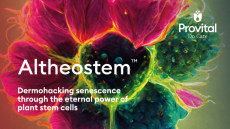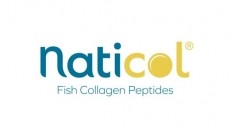Blockchain gives beauty ‘secure, immutable and transparent’ way to log green claims: Provenance
![According to the sustainability marketing specialist, blockchain also enables brands to share their sustainability 'journey' with interested shoppers [Getty Images]](https://www.cosmeticsdesign-europe.com/var/wrbm_gb_food_pharma/storage/images/_aliases/wrbm_large/publications/cosmetics/cosmeticsdesign-europe.com/article/2023/02/27/green-beauty-claims-secure-and-transparent-with-blockchain-technology-says-provenance/16202977-1-eng-GB/Green-beauty-claims-secure-and-transparent-with-blockchain-technology-says-Provenance.jpg)
Last month, Dr Emma Meredith, director-general of the UK’s Cosmetic, Toiletry and Perfumery Association (CTPA), said sustainable action and communication had become a “moral imperative” for the beauty and personal care industry in 2023. And with the EU Cosmetics Regulation (EC) No. 1223/2009 and EU REACH Regulation (EC) No. 1907/2006 both currently under revision, plenty of green change was ahead for industry.
Already, UK, EU and US governments had started to crack down on green claims, with the UK government’s Competition & Markets Authority’s (CMA) Green Claims Code published in 2021 and the European Commission (EC) detailing plans under its European Green Deal to protect consumers against greenwashing. In the US, the Federal Trade Commission (FTC) was also updating its green 'guides' framework.
For beauty, this meant a year of transparency and true sustainable action kickstarted or continued and, most importantly, communicated.
“These different initiatives are going to vary in scope and pace, but what’s common across all three of them is that brands have to prove any of their claims with clear, relevant evidence that shoppers can access,” said Phil Verey, MD of sustainability marketing tech specialist Provenance.
“You have to use shopper friendly language that is specific and clear and use recognised industry certifications to avoid self-accreditation,” Verey told attendees at last year’s Sustainable Cosmetics Summit in Paris.
A ‘secure, immutable and transparent way of logging claims’
Founded in 2017, Provenance was already working with around 200 beauty brands across D2C websites and via retail partners in the EU, UK and US, offering digital verification on a raft of green claims such as ‘recyclable packaging’ and ‘net zero’ and providing evidence for third-party certifications like Cradle-to-Cradle, COSMOS and FSC-Certified, among others. The open-source framework, developed in collaboration with third-party experts, now featured more than 80 different claims brands could make across five pillars – climate, communities, nature, waste and workers – that were then displayed via clickable ‘proof points’ providing deeper information for consumers.
Verey said all of this was being powered by blockchain, which was key. “The simplest way to think about blockchain is as a digital ledger that records transactions over time. And so, the way we use blockchain at Provenance is really just to provide a secure, immutable and transparent way of logging claims, making sure they are fact-checked, that they have the right evidence and making sure those claims are then accessible to anyone who wants to see them,” he said.
“…What we’re trying to do is build a future where shoppers don’t need to just blindly trust what they’ve been told, but themselves can verify the information.”
Provenance research indicated 80% of shoppers had doubts on whether to trust sustainability claims, with less than 25% strongly agreeing that brands were transparent about the environmental and social impact of products. “There’s a serious lack of trust from a shopper’s perspective in the [beauty] industry],” he said, and so using blockchain as a “transparency technology” to overcome this lack of trust would be key moving forward.
Speaking at the same conference, Philippe Guguen, founder and CEO of French digital marketing agency Map Emulsion, agreed blockchain was the way forward for industry trust because of the security it offered and diversity of ownership which was important when dealing with valuable data.
Tracking and communicating the sustainability ‘journey’
Importantly, he said the Provenance software enabled brands to tell a “dynamic story over time” – logging a sustainable claim and then adding a new claim one-year on, for example, on either a product or brand level. “Sustainability is a journey. Sometimes you need to start small and tell that journey over time.”
Verey said what the company was now exploring was the potential to offer transparency at an ingredients level for the beauty industry. “We have the ability to do that from a tech perspective and we’re just trying to figure out whether industry at large is ready to provide that level of transparency.”
Provenance was already used by more than one million shoppers per month, but the company’s goal was to reach one billion people, he said, with the goal of empowering people to choose products that matched their values.
![Whilst algae remains the most widely used in beauty and personal care, there remain a vast array of other marine ingredient resources largely untapped [Getty Images]](https://www.cosmeticsdesign-europe.com/var/wrbm_gb_food_pharma/storage/images/_aliases/wrbm_medium/publications/cosmetics/cosmeticsdesign-europe.com/headlines/formulation-science/marine-ingredients-for-beauty-still-underexploited-though-algae-most-widely-used-finds-review/16285450-1-eng-GB/Marine-ingredients-for-beauty-still-underexploited-though-algae-most-widely-used-finds-review.jpg)
![Consumers are shopping with more intention, impacting desires, needs and expectations in the beauty category in 2023 [Getty Images]](https://www.cosmeticsdesign-europe.com/var/wrbm_gb_food_pharma/storage/images/_aliases/wrbm_medium/publications/cosmetics/cosmeticsdesign-europe.com/article/2023/03/21/beautystreams-cosmotrends-2023-report-highlights-sun-care-waste-menopause-and-more-as-beauty-trends/16267621-1-eng-GB/Beautystreams-Cosmotrends-2023-report-highlights-sun-care-waste-menopause-and-more-as-beauty-trends.jpg)
![Consumers are increasingly turning to their peers for information on beauty - online and offline - and getting further away from brands and brand messaging, claims a consultant [Getty Images]](https://www.cosmeticsdesign-europe.com/var/wrbm_gb_food_pharma/storage/images/_aliases/wrbm_medium/publications/cosmetics/cosmeticsdesign-europe.com/article/2023/03/01/beauty-innovation-must-slow-and-become-science-led-with-substantiated-claims-and-honest-npd-says-dr-theresa-callaghan/16212877-1-eng-GB/Beauty-innovation-must-slow-and-become-science-led-with-substantiated-claims-and-honest-NPD-says-Dr-Theresa-Callaghan.jpg)
![The sustainable transformation of perfumery needs smart and collaborative thinking, pushing forward with recreated natural and synthetic ingredients that plugged green needs [Getty Images]](https://www.cosmeticsdesign-europe.com/var/wrbm_gb_food_pharma/storage/images/_aliases/wrbm_medium/publications/cosmetics/cosmeticsdesign-europe.com/article/2022/12/14/firmenich-says-perfumery-and-fragrances-entering-conscious-beauty-era-with-data-and-collaboration-key/16023443-1-eng-GB/Firmenich-says-perfumery-and-fragrances-entering-conscious-beauty-era-with-data-and-collaboration-key.jpg)









![Dr. G is continuing to expand in South East Asia with a new store in Malaysia. [Dr. G]](https://www.cosmeticsdesign-europe.com/var/wrbm_gb_food_pharma/storage/images/_aliases/wrbm_tiny/publications/cosmetics/cosmeticsdesign-asia.com/headlines/business-financial/dr.-g-doubles-down-on-sea-expansion-on-the-back-of-sunscreen-popularity/16498790-1-eng-GB/Dr.-G-doubles-down-on-SEA-expansion-on-the-back-of-sunscreen-popularity.jpg)




